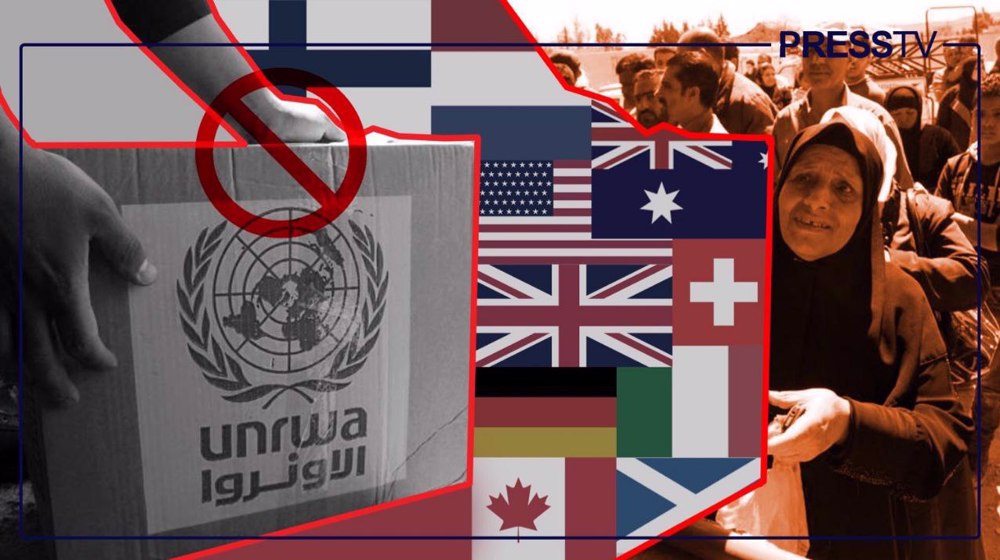While Americans struggle with food crisis, Biden ships arms worth billions to Israel
By Reza Javadi
Amid unceasing US military support for the Israeli genocide in Gaza, a shocking reality is dawning: millions of Americans face food shortages while billions are spent on the Gaza war.
Recent findings BY the US Department of Agriculture reveal that nearly 7 million households had to forgo meals at times in the year 2022. The struggle extended to 44.2 million people living in households experiencing difficulty in securing enough food, a sharp rise from the previous year.
The particularly alarming fact is that over 13 million children across the United States continue to grapple with food insecurity, marking a 45 percent surge from 2021, according to reports.
The US Department of Agriculture report came only weeks after the Israeli regime launched its genocidal war on Gaza in early October, militarily backed by Washington.
“Nearly 13% of American households were food insecure in 2022. That means some 17 million families, or 1 in 8 U.S. households, struggled to meet their nutritional needs at some point in the year,” the report stated, noting that Black families and single mother-led households are the worst affected.
“These numbers are more than statistics. They paint a picture of just how many Americans faced the heartbreaking challenge last year of struggling to meet a basic need for themselves and their children,” US Secretary of Agriculture Tom Vilsack said in a statement at the time.
This unsettling trend marks a reversal of a decade-long decline in hunger, attributing the shift to the withdrawal of pandemic-era measures supporting the social safety net, as noted by Elaine Waxman, a senior fellow at the Urban Institute.
“In particular, we worry about that for children because their trajectory now influences what happens to them later,” says Waxman, noting that the research has found that children who experience food insecurity are more likely to experience worse health outcomes down the road.
American adults are also grappling with daily food shortages, as the report revealed.
Census Bureau October 2023 data reveals that 28 million adults, constituting 12.5 percent of the adult population, live in homes where there's sometimes or often not enough to eat – the highest since the early days of the COVID-19 pandemic.
Food insecurity in the US
According to Feeding America, more than 44 million people in the US face hunger, including 1 in 5 children. Its website states that millions of people in the US don't have enough food to eat or don't have access to healthy food, citing the Household Food Insecurity in the US report.
In 2022 alone, 49 million people turned to food assistance for extra help, the NGO website states, citing its annual report ‘Charitable Food Assistance Participation.’
A report by CBS in May last year said low-income Americans are resorting to tradeoffs as they cope with the rising cost of groceries and cuts to their food aid.
Citing a report by the Greater Boston Food Bank, it said a majority of households in Massachusetts who experienced food insecurity last year had to decide between paying for food or covering house rent.
The Harris Poll in 20122 confirmed that Americans are alarmed by food insecurity. It said 76 percent of Americans saw more empty shelves at grocery stores in late 2022 than at the beginning of 2022.
Another report published by BMC Public Health in March 2021 noted that those facing food insecurity in the US are at “more than double the risk of experiencing anxiety and depression” and these people have a “higher likelihood” of developing multiple chronic health conditions, such as diabetes and heart disease.
Money for arms, not for food
However, while Americans at home are struggling to have square meals a day, the Joe Biden administration continues to supply billions of dollars worth of weapons to the Israeli regime.
Since 1950, the Israeli regime has been the largest recipient of American aid. In the last four months, military aid has surged amid the genocide in the Gaza Strip.
Last week, the US House unveiled a $118 billion package for border security as well as military aid for the Israeli regime and Ukraine. The share of the Tel Aviv regime in the deal was $14.1 billion.
It gave rise to fresh calls for an immediate end to the American military support for the Israeli killing machine, with tax-payers protesting that it’s their money being used to massacre Palestinians.
Bernard Sanders, the US senator from Vermont, released a statement, slamming the US funding for the Israeli regime, which stands accused of genocide at the International Court of Justice (ICJ).
“The United States cannot continue to fund Netanyahu’s horrific war against the Palestinian people. This is not JUST about 27,000 Palestinians killed and 67,000 wounded - two-thirds of whom are women and children. This is not JUST about 70% of the housing units in Gaza being destroyed or damaged,” he wrote.
“This is not JUST about 1.7 million people driven from their homes. This is not JUST about hundreds of thousands of Palestinian children starving to death.”
He also called out the US hypocrisy in international affairs and loss of credibility in the international community over continued support of the Israeli regime.
“This is also about our credibility in the international community and what this country stands for. If we continue to fund Netanyahu’s indiscriminate war how can we, with a straight face, criticize Putin’s targeting of civilians and civilian infrastructure in Ukraine as a war crime? How can we criticize China, Saudi Arabia, and other countries for their many violations of human rights? Who in the world will not see through the hypocrisy?” Sanders hastened to add.
In another tweet, Sanders depicted the US government as complicit in Israeli genocidal war on Gaza and said the congressmen would be damned if they approved any further funding for Israel.
“Through our financial support of Israel, the U.S. is complicit in the humanitarian disaster in Gaza. I will be damned if I’m going to give another nickel to the Netanyahu government in order to continue this war against the Palestinian people,” Sanders tweeted.
Writing blank checks for genocide
US Campaign for Palestinian Rights in a report stated that every year, the US government “writes Israel a blank check for at least $3.8 billion to fund Israel’s violence against the Palestinian people.”
“Rather than using those funds to provide for communities in need here, our government uses taxpayer dollars to enable the Israeli military to kill Palestinians, destroy their homes, and steal their native land,” the US-based pro-Palestine advocacy group stated.
Code Pink, a women-led grassroots organization working to end US wars and militarism, also recently issued a global call on the US “to stop funding the ethnic cleansing of Palestine.”
“The slaughter and daily assault on Palestinian human rights being carried out by Israel is an unacceptable use of US taxpayer dollars. We demand an end to U.S. collaboration in the ethnic cleansing of Palestine,” read the statement.
“US taxpayers pay Israel over 10 million dollars a day, and Israel uses that money to inflict violence all over Palestine. We call you to halt this “aid” and demand that Israel stop its assault on Gaza, its evictions in East Jerusalem, and its attacks on Al-Aqsa.”
Jon Schwarz, writing in The Intercept, said he had been wondering how much money he, as an American citizen, contributes to Israel’s occupation of the Palestinian territories and attacks on Gaza.
“So how much have I chipped in to create this hell on earth? The best answer I’ve come up with is $150,” he wrote, adding that it could be less or more.
“You can figure out your own contribution if you want: Add your income taxes to any federal bonds you bought this year and multiply that number by 0.004.”
According to a March report by the US Congressional Research Service, Washington has sent Tel Aviv a total of $158 billion in bilateral assistance and missile funding since 1948.
At the same time, the US and several other Western countries have stopped funding for the UN agency for Palestinian refugees, precipitating the humanitarian crisis in the besieged territory.

Houthi: Bab al-Mandab, Arabian Sea closed to Israeli, US ships

Spain cancels arms deal with Israeli company over Gaza aggression

Over 100 rabbis, cantors slam Trump for pro-Palestine campus crackdown
Senior diplomats from Iran, Russia, China hold talks with IAEA chief
Two US marines accused of raping Japanese women in Okinawa
VIDEO | Shahin Hazamy arrested primarily for his viral pro-Palestine social media posts: Filmmaker
Houthi: Bab al-Mandab, Arabian Sea closed to Israeli, US ships
India, Pakistan escalate tit-for-tat moves with military threats
VIDEO | Press TV's news headlines
Spain cancels arms deal with Israeli company over Gaza aggression
Dozen US states sue Trump government over 'insane, reckless' tariffs














 This makes it easy to access the Press TV website
This makes it easy to access the Press TV website